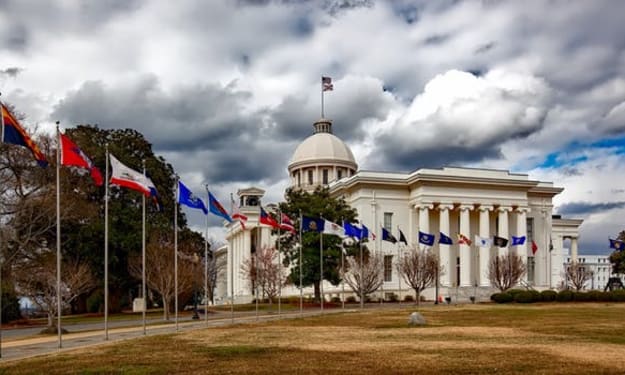Politics and the law of diminishing returns
Why more can result in less

Politics and the laws of diminishing returns
Why more can result in less.
The law of diminishing returns suggests that the more you have of anything, the less effect you get from adding an other portion of the same thing. For a crude example; if you give a poor person £1000 it will have a huge effect and should be of great (if temporary) benefit to them. If you give a £1000 to a multimillionaire it will have very little effect and be of only a tiny benefit to them. If you start with no money the first £10,000 means such a lot and make a huge difference to your life; the next £10,000 means a lot but not bring quite the same”relief.” By the time you have had 1000 lots of £10,000 the 1,001st allotment will make relatively little difference to your life.
Apply this to politics in a democracy. The appeal of any particular politician will increase with exposure, until they reach a maximum then the more the public “get” of them, the less impact they have. This then gradually causes a reduction in popular acceptance. This rise and fall is noticed more with “personality” politicians than with “conviction” ones. Observation indicates that conviction politicians tend to have less popular appeal but that appeal stays consistent, usually at a lower level. A politician who trades on their personal eccentricity or anti establishment attitudes, will gain popularity fast but as the examples of their attitudes multiply, the increase in voter appeal will reduce. If they are skillful and tone down this personality in order focus on policy, the actual level of popularity will be maintained as long as the policies work and are supported by the majority.
Even policies are subject to the law of diminishing returns. Take, as an example, A tax on petrol. When first introduced it may be accepted by a majority as necessary to provide money for health care and to “help” the environment but as time goes on and the tax is increased in every budget, its acceptance level gets reduced. The effect on the attitude of voters becomes negative, where it once was positive (in majority view) Voters start to see it as an attack on their personal life style rather than a necessity. Property tax would be initially popular when the vast majority of the general population lived in rented places. As ownership, via mortgage debt, of homes becomes more wide spread and so people of average income became liable to pay a form of property tax; its acceptance level drops.
When devising policy, any political group needs to be aware that more of the same will have less acceptance than the initial proposals did. One way to overcome this is to simply rename things but the voting public are better educated and informed that they were 100 years ago, so this ruse is not so effective. The political public relationship spin doctors are fond of “freshening up” policies. They actually mean slightly changing the projected image of the same old policy. Again the now better informed population, can see though this. The biggest problem for all political groups is simple. They need a policy to get more tax income in, so they can spend it in ways that fits their own political ideology. The more tax they seek to collect the less popular the group becomes. If they go too far this will cause them to be voted out and they will not have the power to pursue their ideological aims. Way back in history, the devising of “new” taxes was reality easy, in Britain we had window taxes, excise duty, purchase tax, etc. but now we have so many taxes that the people recognize that any and all taxes end up in the same governments account. The green movement with its basic premise of saving the planet, has been a great gift to those charged with finding acceptable ways of increasing taxation, especially for those political philosophies that advocate tax and spend, the ones that seek to have greater state control over the individuals. But even these “green taxes” are staring to be affected by the law of diminishing returns. Forcing the population to scrap combustion engine vehicles and buy lithium dependent battery powered ones, works initially; as long as the propaganda keeps the environmental cost of early destruction of still viable machines out of the equation; but the need for governments to replace the tax revenue they will loose ( from tax of petrol and diesel) is going to be way less popular. Popularity will hit a big level of diminishing returns when they replace the tax gathered from fossil fuels with a tax on the miles traveled by every vehicle.
To think that the green issue means that in the future, there will only be a tax on environmental damaging stuff, is naive in extreme. Future governments will still need an ever increasing amount of tax income. If the whole nation gives up its use of fossil fuels, went teetotal and vegan, taxes will have to be raised by other means. The government will not stop spending money because environmental aims have been met. When electricity is both clean and cheap to produce, via fusion power and all transport is by hydrogen fuel cells, governments will increase the tax on electricity and hydrogen, to bring the cost to the consumer back to previous highest levels, they will tax movement per mile, they will tax bicycles and basic food items. Taxes will still be raised. The law of diminishing returns (of acceptance levels,) will apply to green politics in a big way, once these things become a reality.
Taxation on business enterprises, is a clear example of how the law of diminishing returns affects the politics of any government. Mobility of both capital and labour is now common. Firms operate at what they consider an acceptable level of corporate taxation. An increase in the tax on a business enterprise, in any particular nation; will result in that enterprise being moved to a lower tax host. The tax revenue to the original nation, will fall due to the latest increase in the rate of tax.
About the Creator
Peter Rose
Collections of "my" vocal essays with additions, are available as printed books ASIN 197680615 and 1980878536 also some fictional works and some e books available at Amazon;-
amazon.com/author/healthandfunpeterrose
.






Comments
There are no comments for this story
Be the first to respond and start the conversation.